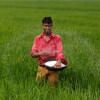Export to India at high risk

India has launched an anti-dumping investigation into imports of jute goods from Bangladesh to see whether the export prices are set below fair market prices.
In October, the Directorate General of Anti-Dumping and Allied Duties (DGAD) under India's commerce ministry opened the probe as part of its plan to impose anti-dumping duty on jute items imported from Bangladesh.
The move came after the Indian Jute Mills Association accused Bangladeshi exporters, for the first time in 40 years, of selling jute products at prices lower than that in India's domestic market.
If the Indian government imposes an anti-dumping tariff (up to 20 percent) on Bangladeshi jute goods after the probe, it could deal a heavy blow to the Bangladeshi millers and exporters and further widen the already huge trade gap between the two countries.
Anti-dumping tariff is a penalty imposed on suspiciously low-priced imports, to increase their price in the importing country to protect local industry from unfair competition.
In 2014-15, Bangladesh exported jute goods (yarn, twine, sacks and bags) worth around $700 million. Of the total export, around 20 percent went to India, where Bangladeshi jute goods account for 8-10 percent of its market share. Other major destinations for Bangladeshi jute items are Turkey, Iran, Egypt, China and the US.
“How 10 percent share [of the Indian market] is disturbing the Indian market?” asked Hossain Khaled, managing director of Anwar Jute Mill.
He is surprised to see the complaint lodged for the first time in more than 40 years.
Referring to the cash incentives by the Bangladesh government to encourage jute production and export, he said it was wrong on the part of the Indian authorities to be concerned about it.
“The cash incentive is decreasing gradually. At present, it stands at 5 percent for yarn and 7.5 percent for other jute goods, down from 15 percent several years ago,” Khaled told The Daily Star.
Majority of the Bangladeshi millers and exporters have declined to respond to the Indian government's queries sent to them to reply by January 29, after extending the deadline once.
The DGAD first set December 15 last year as the deadline. So far, only 20 percent millers and exporters responded.
State-owned Bangladesh Jute Mills Corporation (BJMC), which is the single largest Bangladeshi seller of jute and jute goods to India, has provided information on a limited scale.
“We've given some information, but we don't want to give our business secrets, such as the selling price to other export markets,” said Maj Gen Humayun Khaled, chairman of BJMC.
He, too, questioned the DGAD investigation after so many years.
Gopi Kishon Sureka, chief executive of Fiber 'N Fibre in Bangladesh that exports jute goods to India, said the government in recent years cut down the cash incentive twice. This indicates neither the government nor any individual manufacturer has the intention of dumping the products in India.
“It is impossible to furnish the details of the questionnaire sent to us by the DGAD of India. National export figures should be taken into account instead of individual company's details,” said Sureka.
He also urged officials of the two governments to resolve the issue through talks.
The move has made Indian importers concerned as well because it would help a few Indian millers make a monopoly market, for which consumers will be the ultimate victims.
In a letter on January 28, the Jute Products Importers Association (JPIA) of India requested the commerce minister of Bangladesh to intervene.
“The JPIA strongly feels that there is no case of imposing any duty on import of jute goods from Bangladesh into India,” read the letter obtained by The Daily Star.
This correspondent talked to Rishi Jalan, joint secretary of the JPIA, who visited Dhaka last week to persuade the government on the issue.
“The demand for jute goods in India is higher than the supply, and the gap is met by the imports from Bangladesh. A few Indian millers want to make it a monopoly market,” Jalan said, explaining the intention behind the move.
If the anti-dumping duty is imposed, Indian consumers will suffer and will be forced to use plastic bags, he said.
Sheikh Abdul Mannan, acting chairman of Bangladesh Tariff Commission, which is the designated authority of the government to deal with the issue, said they were aware of the move.
On the stringent questionnaire sent by the DGAD, he said it was in line with the rules of the World Trade Organisation.
“Jute millers and exporters should respond to the Indian queries for fair treatment of the allegation,” said Mannan.
Bangladesh's imports from India were around $6 billion against its exports worth just $500 million in 2014-15.

 For all latest news, follow The Daily Star's Google News channel.
For all latest news, follow The Daily Star's Google News channel. 








Comments